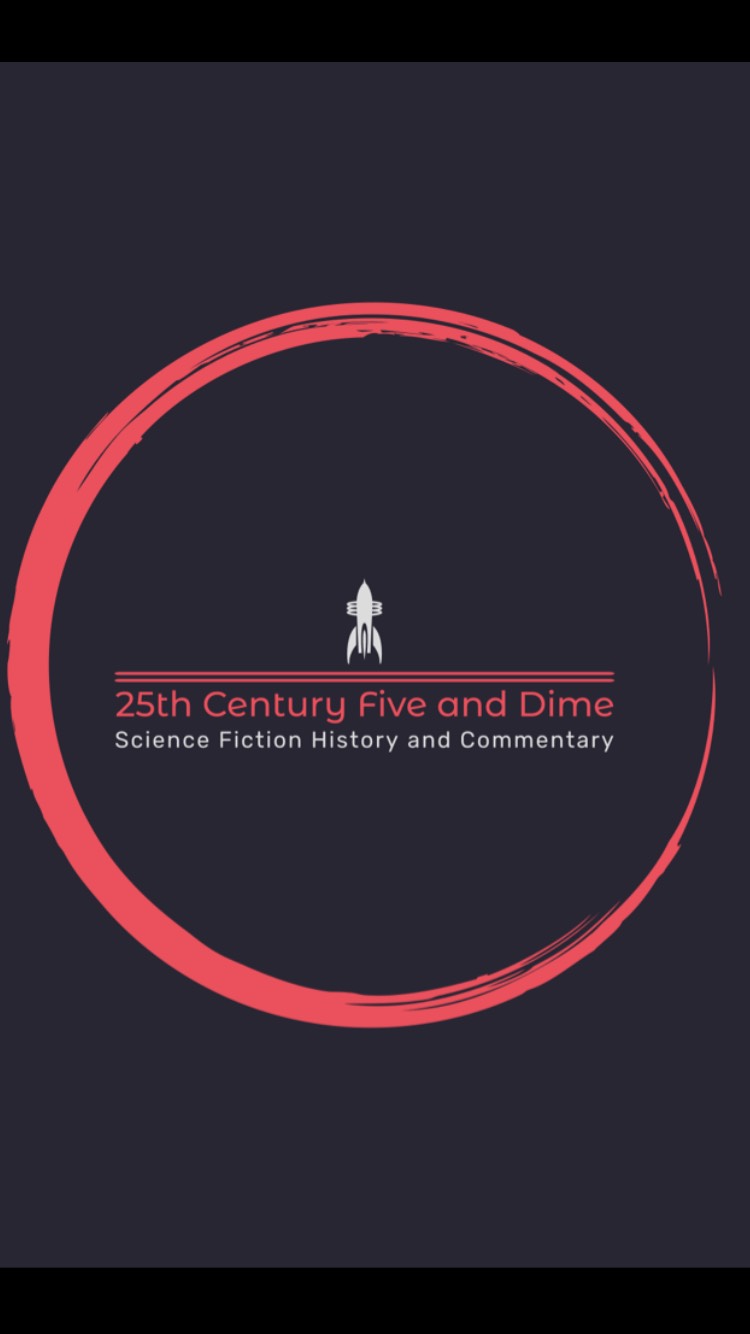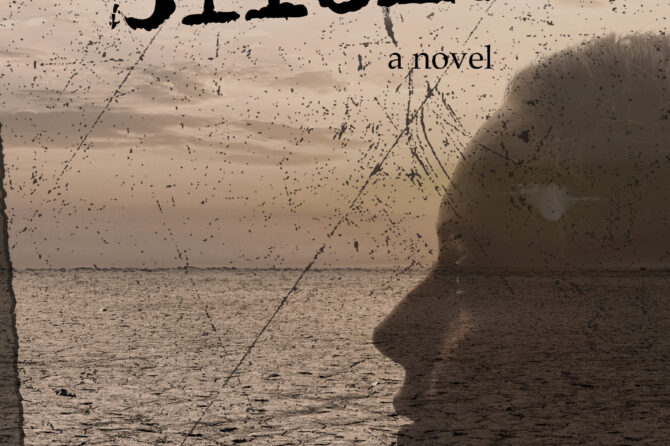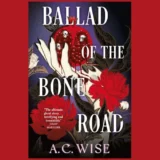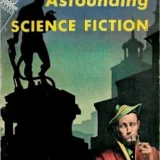 William Sarill in his many decades on earth had a career in biochemistry, art restoration, physics, and esotericism. He recently told us on the Dickheads podcast, that despite a full lifetime of accomplishments. He knows the thing in his life he will most be remembered for is being Philip K Dick’s Friend, who stayed up late talking about the mysteries of the universe. Many of Philip K. Dick’s friends’ decades after his death have had their experience reduced to being a famous friend.
William Sarill in his many decades on earth had a career in biochemistry, art restoration, physics, and esotericism. He recently told us on the Dickheads podcast, that despite a full lifetime of accomplishments. He knows the thing in his life he will most be remembered for is being Philip K Dick’s Friend, who stayed up late talking about the mysteries of the universe. Many of Philip K. Dick’s friends’ decades after his death have had their experience reduced to being a famous friend.
This easily could be the fate of Ray Faraday Nelson. 
In December 2021 I went to Berkeley to make a pilgrimage to the various childhood homes and hometown haunts of Philip K. Dick. With David Gill the noted writer of the For Dickheads Only blog as my guide and nerd companion, we visited the many places where Dick hung out. Ray and Phil both attended Tony Boucher’s $1 Thursday night Science Fiction workshops, Phil in the early 50s and Ray in the early 60s. They were housemates in Oakland just long enough for Nelson to complete the final revisions on Three Stigmata of Palmer Eldritch when Phil was afraid to revisit it. They also co-authored the Ganymede Takeover making the rights sticky and one of the few hard-to-find PKD novels. We saw the house in Oakland where they were housemates. As we left the house in Oakland I promised myself to know Ray Nelson as more than a writer or friend in the famous shadow.
So, at one point in my trip, I stopped at Half-Price Books on the hunt for a Nelson was on my mind. Sure, I had read his most famous story, and the book he co-wrote with Phil. So I scanned the shelves hoping to find a Ray Nelson book and found this silly-looking paperback. If I judged a book by the cover, I wouldn’t have picked up Virtual Zen which looked super goofy. But I was in Berkeley, and I decided to pick up this paperback. When I took it to the counter, the Bored Millennial Cashier and I had this exchange. I put down my stack of old paperbacks.
Me: That author lived here.
Bored Millennial Cashier: Oh yeah?
Me: He attended Thursday night $1 Science Fiction workshops in the 60s with some of the greats of the genre just six blocks from here on Dana Street.
Bored Millennial Cashier: Your total is $20. 35, did you need a bag?
I thought it was interesting. Maybe she would have been more impressed if she knew he invented the propeller beanie. He did by the way, as first seen as part of his outfit at early conventions. As Ray himself said, “Centuries after all my writings have been forgotten, in some far corner of the galaxy, a beaniecopter will still be spinning.”

At 91 years old one week after the death of Greg Bear Science Fiction also lost Ray Nelson. He had a long productive life that will mostly be remembered for a short story. ‘Eight O’Clock in the Morning’ was published 59 years ago to the month of his death. It is a pretty great story to be remembered for. It was published first in The Magazine of Fantasy & Science Fiction in November 1963. This is an important issue of the magazine currently going for $200 bucks on Amazon. This issue has the first publication of Roger Zelazny’s classic ‘A Rose for Ecclesiastes,‘ which was nominated for the Hugo Award, I know many think of it as one of Zelazny’s best and was included in The Science Fiction Hall of Fame Volume One. Nelson’s story didn’t make the cover but in the end, it is the most famous one, as it inspired John Carpenter’s classic movie ‘They Live’ which was the reason I tracked down the story as a teenager. There are lots of free audio narrations on YouTube, you should check it out, it is a far more creepy and paranoid story than the movie. Packs lots of story into a short word count. Classic for a reason.

So right after Bear’s death I read and reviewed Blood Music. So it was with a heavy heart that I decided I needed to honor Nelson with a first-time read. I thought the cover of this one was goofy, and with no idea what it was about, I started to read. I didn’t read the back cover, knew absolutely nothing about the story. I know more about Nelson from Phil. In my study of Phil, he mentions Nelson a couple of times as a model for characters. Famously Roy Batty in Blade Runner. It is one thing that they wrote a novel together but Phil who was established already really wanted to push Ray forward and offered to write more novels with him to try and get Nelson more chances at Ace.
It wasn’t until ten years after their collaboration that Nelson published his next novel Blake’s Progress, which many consider to be his best work. I should have probably read that one but I read his last work. Virtual Zen was published in 1996 by an Avon books SF label called AvonNova. If you don’t know Avon was a publisher known for Romance novels targeted at housewives. It must have been short-lived as I could find no information on the line or who the editor was.

After reading the novel I have a theory that it was written in the late 80s. I don’t know when or if Ray Nelson ever quit writing SF. I know Barry Malzberg has kept writing after he felt his publishing days were over. Perhaps Ray Nelson’s gems are hanging around on a hard-drive, or in a folder somewhere. I respect the hell out of Nelson, and reading Virtual Zen was an interesting experience. I am not sure anyone who is not invested in Nelson as a person would find Virtual Zen to be an objectively good science fiction novel. The only review of it on Goodreads before I came along was a 1-star review that started with “Oh god did this book suck.” Sure, it is a weird book and I can admit it is not for everybody. That said, I enjoyed the experience.
Virtual Zen is a bizarro experience because it is a Science Fiction book about hip-music culture written by a guy who admittedly aged out of being hip when this novel was released. Consider that in 1996 we are talking about the dawn of the internet, written before that era. It is a really interesting artifact projecting a future that has interesting cross-winds of ideas set in motion by the fertile imagination of a classical SF voice. I mean Ray Nelson was a cool, hip guy in the 50s and 60s but this book was released in the 90s.
I can’t imagine Ray Nelson being on the cutting edge of post-grunge avant-garde neo-post punk in 1996. So, a novel about John Henry Koyama, the son of a popular musician who just killed himself and became a pop icon has a surreal quality. The record label needs him to pick up his dad’s career, using AI programming they can compose new work he just needs to be the face of the effort. It is interesting as the internet has had a constant debate in the past month about art created by artificial intelligence. “Few people in the industry, or even in the inside your father’s organization, know it, but today Mike Koyama, as a creative artist, is a totally artificial being. To maintain our standing with the listening public, however, we need a human figurehead.”
John Henry Koyama who goes under the “Big Mike” label becomes a sensation playing his street music on a toy flute, and he rebels against the record label and the industry. He creates music and styles the cool kids call Wabi, As in that song is Wabi or not Wabi. In the future, the most wabi composer of the long-ago 20th century is Annie Lennox. Such a weird, dated choice, but I kind of loved it when I read that.
The story is set in a post-America future but only two new countries of Pacifica and MexAmerica are mentioned. Most of the story is set in Tokyo which has become a cross-ocean nation with former California. This world-building is kind of impossible enough to me that it has to be a little tongue-in-cheek or satire. I mean it is the actions of President Dan Quayle (his big mouth apparently) that led to this future, not only is that hilarious to consider it is what dates the writing of this novel to the 80s for me. No proof, but it seems clear to me.
That use of humor in World-building was something his friend Philip K Dick was a master at. Some moments hint at a darker outside world. “Today there are no great powers, only hundreds of small powers, all with nuclear weapons, not all governed by anyone’s idea of sane.”
Trivideo is an all-encompassing technology similar to our phones that connects the characters to the Net as it exists in this world. There are really strange sentences that I thought were perhaps a not-so-subtle diss at one of the greats of Science Fiction whose reputation has since been exposed as having a problem with groping women. “And I admired her walk as she strolled away. Neither my mother nor Issac Asimov had warned me about girls like her.” Well, then I realized it was about a sex worker robot.
Some moments read like the fiction of Nelson’s famous friend. The most PKD part of this novel is the opening of chapter 20.
“Good Morning Mr.Foster.” said the door in its cheery Miss Holy Valentine voice.
“Up yours door,” I muttered.
Of course in Phil’s book, he might be short the change to pay to open the door at all.
Virtual Zen is a really strange book. There are no action scenes, no shoot-outs, or car chases, the thing that makes it interesting is the weird surreal world and for me how strangely out of date it was even when it was released. The idea of Wabi, something the book expresses as so cool, doesn’t feel cool to me, but who cares? The novel is interesting if you ride with it. In the final act, even Wabi becomes capitalized. The very idea of the book is built around a Tokyo street musician who plays a toy flute is just so great.
The reality is Ray Faraday Nelson had great success in his career. He wrote good stuff. Roy Batty, They Live and the Propeller Beanie are more his legacy, than books. He doesn’t have Hugo awards or be a household name even in genre circles, but you know fuck that. Ray Nelson did cool stuff. He wrote cool stuff. He deserves to be remembered as a powerful writer.
I don’t think Virtual Zen will work for most readers. I have to admit that. I kind of love the way the novel lives in that zone. Yeah, most readers will be turned off. They will think it is silly and weird. The cover art as goofy as it is but it actually fits the novel. That is a feature, not a bug.

David Agranoff Grew up in Bloomington, Indiana hanging in the park that inspired this novel. His future wife worked at the Spoon serving the real-life Electric Fred. They have two of his notebooks and a house full of rescued animals. David is a novelist, screenwriter and a Horror and Science Fiction critic. He is the Splatterpunk and Wonderland book award nominated author of 11 books including the novels the WW II Vampire novel – The Last Night to Kill Nazis, and the science fiction novel Goddamn Killing Machines from CLASH BOOKS, The Cli-fi novel Ring of Fire, Punk Rock Ghost Story He co-wrote a novel Nightmare City (with Anthony Trevino) that he likes to pitch as The Wire if Clive Barker and Philip K Dick were on the writing staff. As a critic he has written more than a thousand book reviews on his blog Postcards from a Dying World which has recently become a podcast, featuring interviews with award-winning and bestselling authors such Stephen Graham Jones, Paul Tremblay, Alma Katsu and Josh Malerman. For the last five years David has co-hosted the Dickheads podcast, a deep-dive into the work of Philip K. Dick reviewing his novels in publication order as well as the history of Science Fiction. David’s non-fiction essays have appeared on Tor.com, NeoText and Cemetery Dance. He just finished writing a book, Unfinished PKD on the unpublished fragments and outlines of Philip K. Dick. He lives in San Diego where you can find him hooping in pick-up games and taking too many threes.








